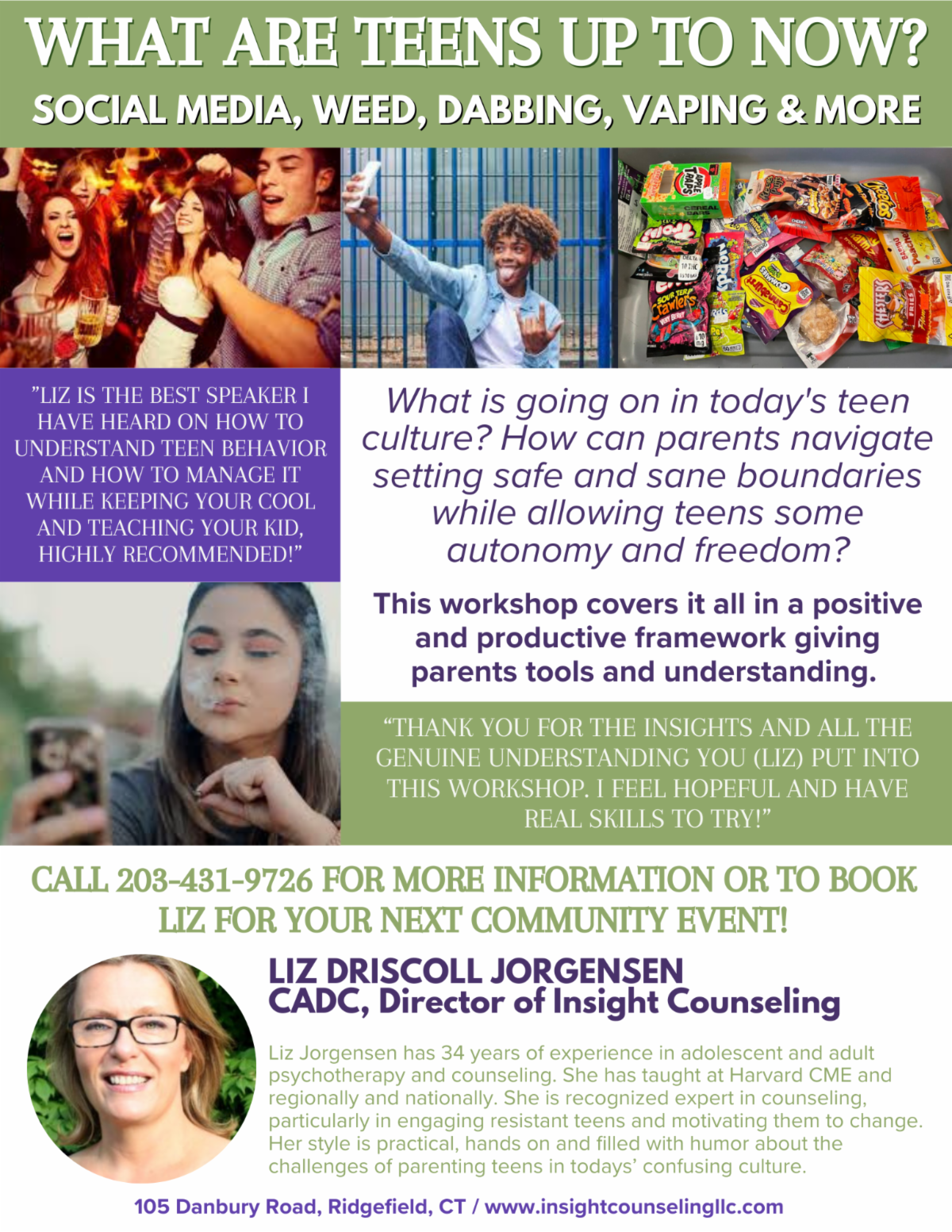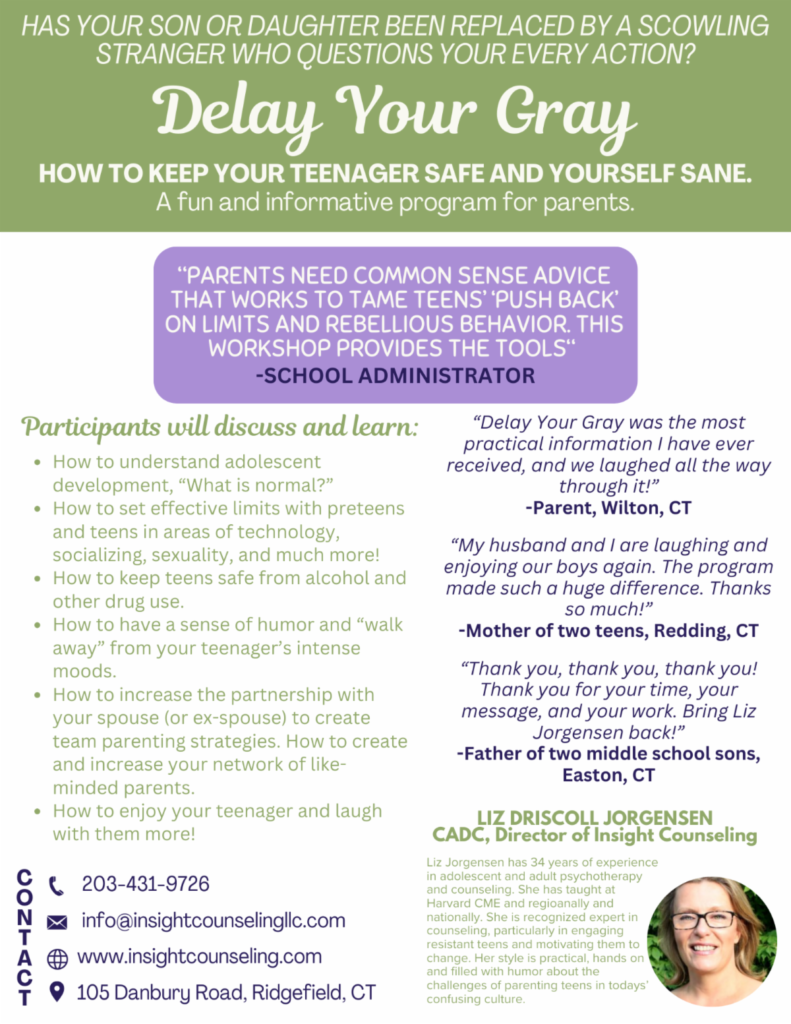FOR SCHOOLS
December 2024:
November 2024:
Action, Help, and Policies on Screen Use and News on THC
Cheers and Gratitude for Educational Leaders Setting Limits on Screen Use in School!
It is an interesting time in schools in New England and nationally. Quietly but consistently, school administrators are creating policies that limit or end students’ access to smartphones during the school day. These decisions are wise in my book, although challenging to initiate and enforce…at first. From my vantage point (and as I’ve spoken with many school administrators), the biggest obstacle to refocusing a generation of distracted students has been parents’ objections to losing 24/7 access to their child.
Many scholars have been gathering data to explain the epidemic proportion of young people with anxiety and depression, and screen access and parental anxiety are key factors. It’s an extra burden for one of the “fixes” to bring young people back to a healthy level of functioning is laid on school personnel, but as the defacto center of community for many families in the 2020s, schools seem to have no choice but to weigh in on these important cultural issues.
Why do parents object to limits on their child’s use of smartphones during the school day? Common sense might dictate that more available attention on school work would be a net benefit regardless of kids’ displeasure or frustration. The research trend reveals that parents’ objections are partly due to the generational expectation of “on-demand” parenting and parents’ refusal to allow normal and essential frustration and struggle in their children’s daily lives.
We know that parental anxiety over their children’s safety has roots in some realities. School shootings and violence are an ugly and terrible fact of life in the United States…and yet, it’s still an intensely rare occurrence. If children and their parents anticipate the worst-case scenario, then constant contact makes sense. Of course, I wish I had answers to reduce the anxiety parents and school officials may feel at times. Despite the rare but real threats, schools have made courageous attempts to stay safe and accessible.
In the spirit of sharing easy, accessible data sources and advice for parents and schools, I love this Substack by Jacqueline Nesi, Ph.D., “Techno Sapiens.” Dr. Nesi shares hard data in a measured and rational way and shares links to sharable sources for parents.

Meant for Mental Health and Addiction Professionals and School-Based Counselors,
this webinar focuses on the strong psychiatric impact of High Potency Cannabis on Teens and Young Adults.



